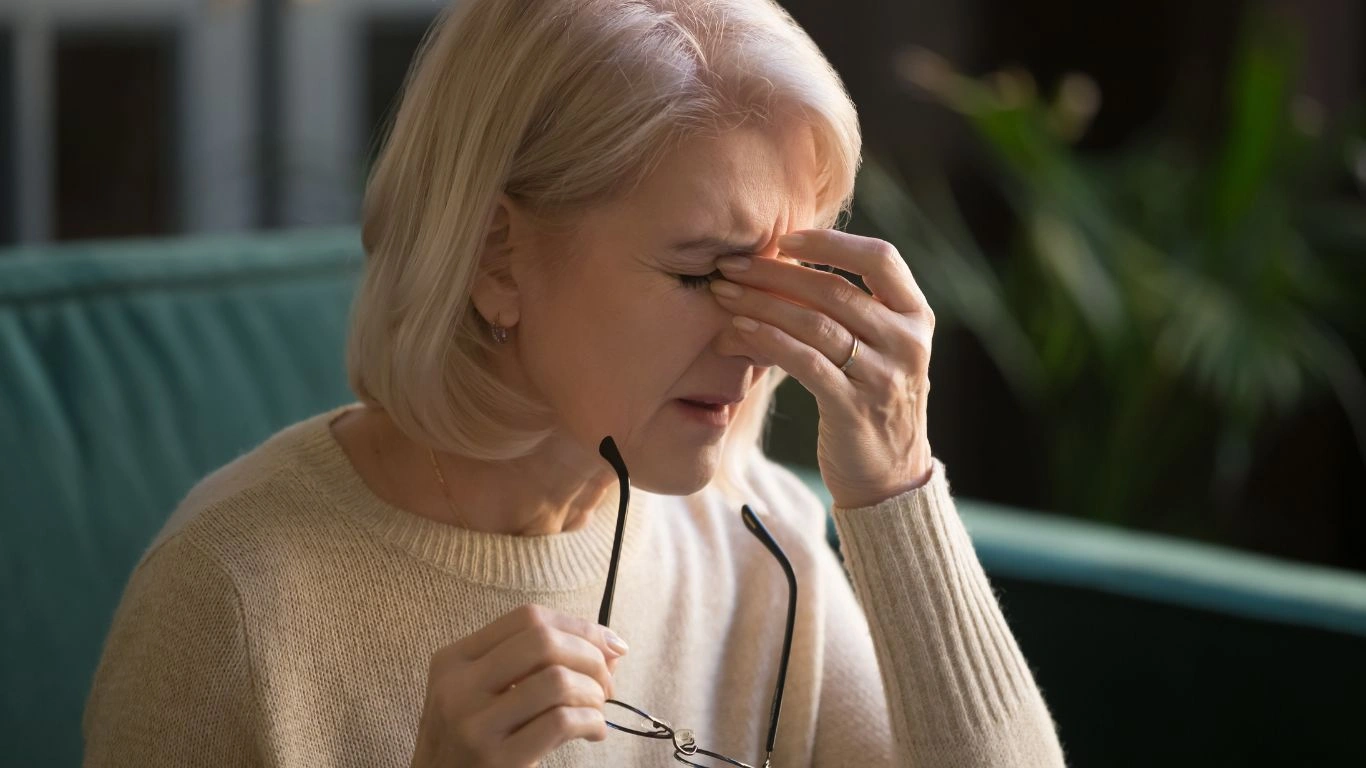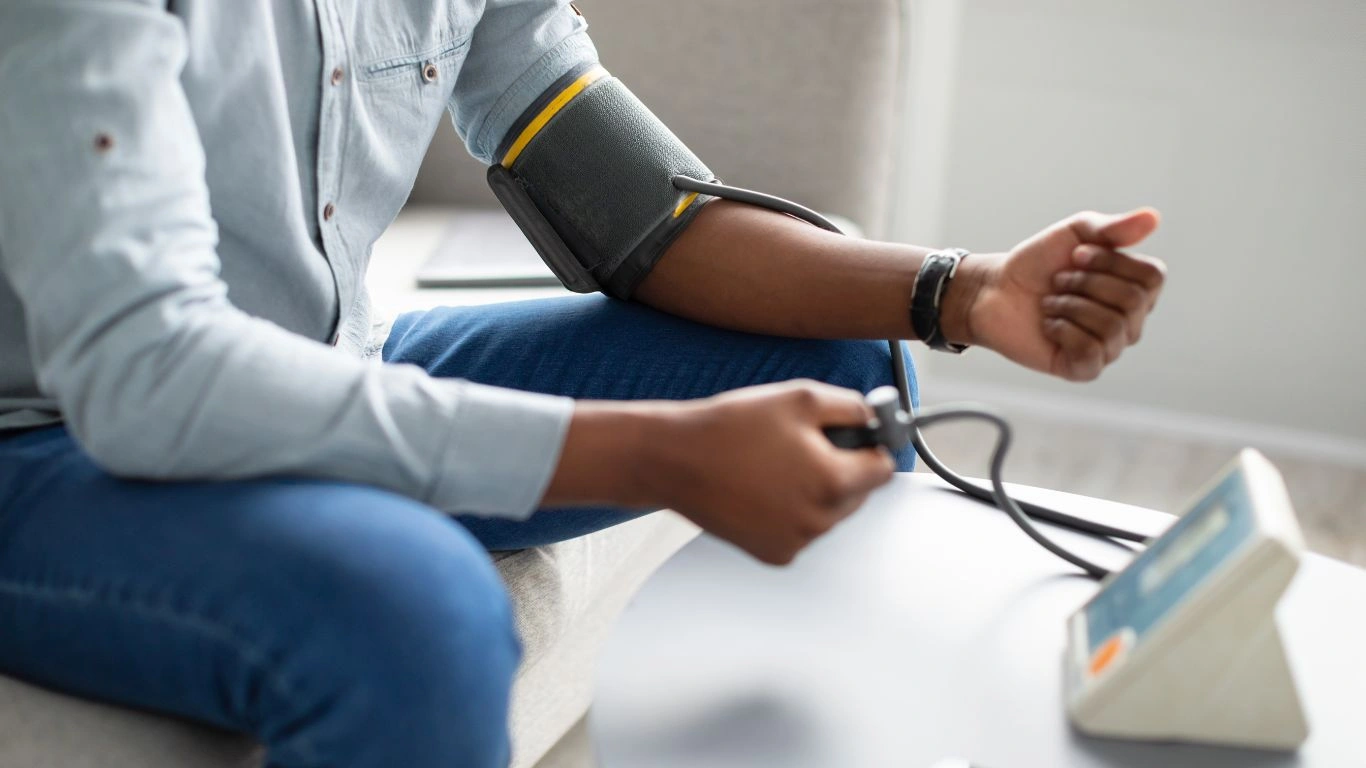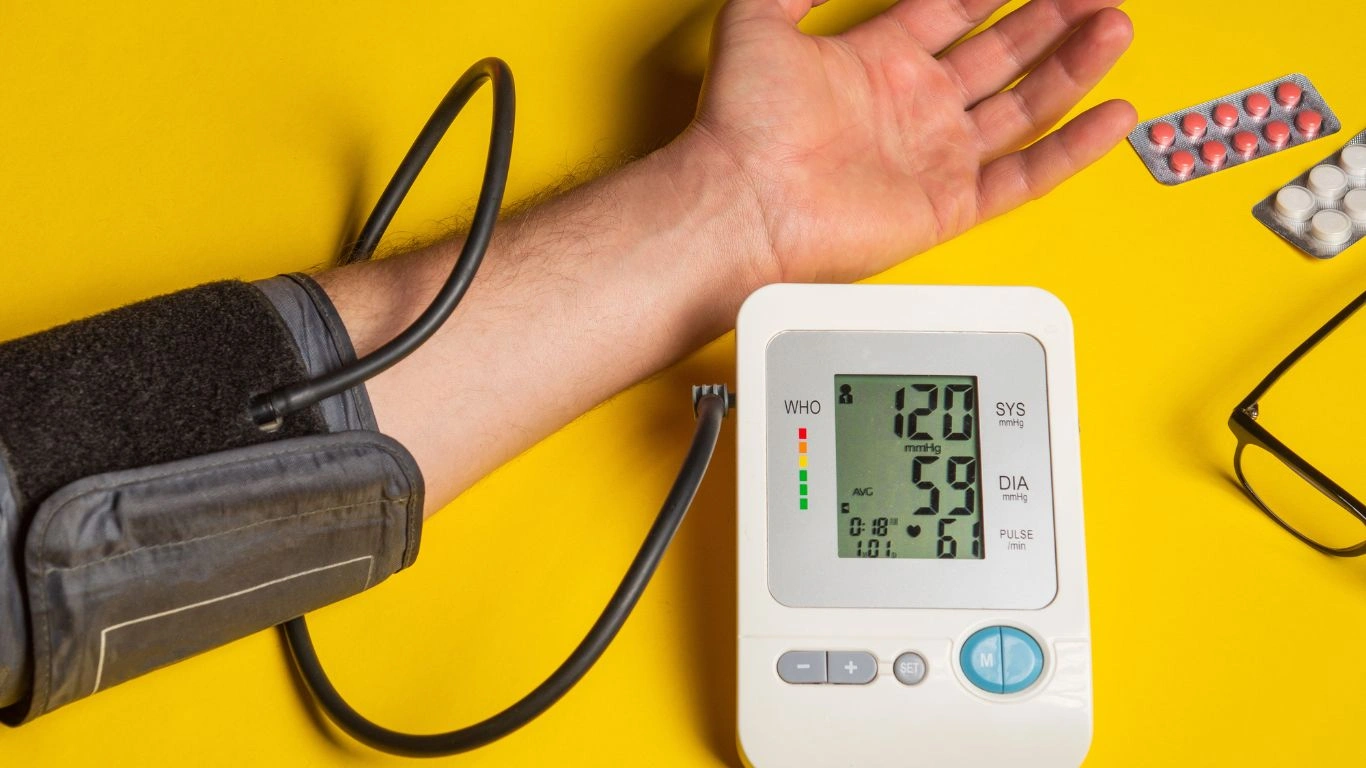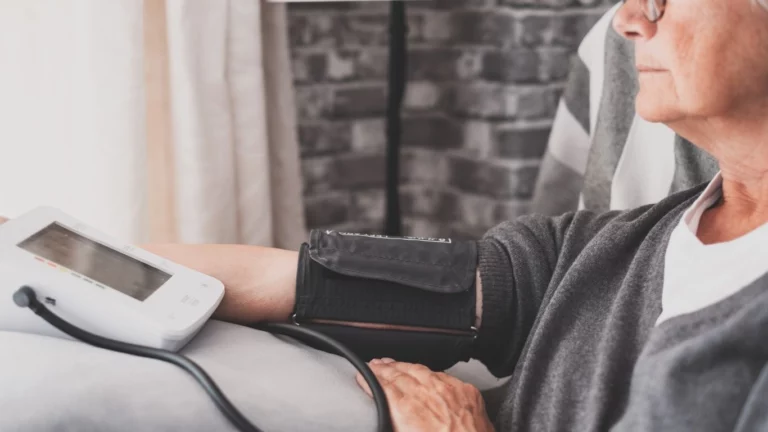Best Safe Supplements for High Blood Pressure Patients That Actually Work
As an internal medicine physician, I’ve had countless conversations with patients over the years about managing their blood pressure—not just through prescriptions and lifestyle changes, but also through something a little less talked about: safe supplements for high blood pressure patients. Trust me, I get it. Medications can be life-saving, but so many of my patients still ask, “Is there something natural I can add to my routine that won’t send my BP through the roof?” The short answer? Yes—but not all supplements are created equal, and some are downright risky if you’re not careful. That’s why I wanted to dig into this topic and share what I’ve learned from clinical experience, ongoing research, and lots of patient feedback.
Why Supplements Matter in Hypertension Management

When it comes to blood pressure, the smallest change can tip the scale. A bit too much sodium? Boom—your numbers jump. Missed a walk? It shows. That’s the challenge with hypertension—it’s sensitive, and it doesn’t always “feel” like something’s off. That’s also why many people turn to supplements. They’re easy, often natural, and can offer support when used correctly. But here’s the kicker: some can actually interact with your meds or spike your pressure if you’re not watching closely.
That’s where I step in—as someone who has reviewed labs, checked blood pressure logs, and adjusted meds based on how patients responded to their supplement choices. The goal isn’t just to throw pills at the problem—it’s to treat the whole person. And yes, that includes the natural stuff too.
Common Supplement Pitfalls Patients Face
Let me start with what not to do—because I’ve seen the fallout more than once. Some of the most popular over-the-counter supplements can actually do more harm than good if you’re not reading the fine print.
- Licorice root – Sounds harmless, right? Except it can cause sodium retention and potassium loss, which is a nightmare combo for hypertension.
- St. John’s Wort – While it’s used for mood support, it can interfere with blood pressure medications and even make them less effective.
- Ephedra (Ma Huang) – This one’s been banned in many places for a reason—it can dangerously raise blood pressure and heart rate.
If I had a dollar for every time a patient said, “But it’s natural!” I’d probably have funded my own supplement line by now. Natural doesn’t always mean safe—especially with something as delicate as blood pressure control.
What Actually Works? Safe Supplements for High Blood Pressure Patients

Now let’s get into the good stuff—the safe supplements for high blood pressure patients that I’ve seen actually help, especially when used alongside a solid lifestyle foundation. These are the ones I feel comfortable recommending after checking someone’s full medical picture.
1. Magnesium
Magnesium is like the unsung hero of cardiovascular health. I’ve had patients whose blood pressure numbers improved noticeably just from optimizing their magnesium intake. It helps relax blood vessels and supports healthy nerve function, which can reduce resistance in your arteries.
- Best form: Magnesium glycinate or citrate
- Dosage: Typically 200-400mg/day, but always discuss with your doc first
Quick tip from clinic life: I usually recommend splitting the dose to avoid digestive upset—and never starting high. Always build up slowly.
2. Coenzyme Q10 (CoQ10)
Here’s one I often suggest, especially for patients on statins or those who’ve had long-standing hypertension. CoQ10 is a powerful antioxidant that helps support energy production in cells and may improve endothelial function—the lining of your blood vessels.
- Improves systolic and diastolic pressure in some small studies
- Usually well-tolerated with few side effects
I had a patient, 62-year-old male with resistant hypertension, who saw a significant improvement after adding 100mg of CoQ10 twice daily. Of course, we monitored him closely, but he was thrilled with the results—and felt more energized too.
3. Omega-3 Fatty Acids
Fish oil is practically a household name by now, but it’s more than just heart hype. Omega-3s help reduce inflammation and have been shown to modestly reduce blood pressure—particularly in people with high triglycerides or metabolic syndrome.
- Look for high EPA/DHA content per capsule
- Be cautious of overly cheap products—they often have low purity
Tip: If you’re on blood thinners, double-check with your provider. Omega-3s can slightly thin the blood, and we don’t want any surprises on your INR test.
4. Potassium (from food and sometimes supplements)
This one’s a bit of a gray zone. I always recommend getting potassium from food first—think bananas, spinach, sweet potatoes—but in some cases, a supplement makes sense. The key is to balance it with your kidney function. Too much potassium in someone with reduced kidney function? That’s dangerous territory.
Bottom line: Potassium helps counteract sodium’s blood-pressure-raising effects. But it needs to be personalized. I’ve seen too many well-meaning folks go overboard and end up in trouble.
It’s Not Just About Popping Pills

Look, I’m not anti-supplement. I’m all for smart additions that can support your blood pressure goals—as long as they fit your unique health picture. In my practice, I’ve seen the best results when supplements are just one piece of the puzzle: combined with good nutrition, stress reduction, exercise, and the right meds (when needed).
And just a gentle reminder from your friendly neighborhood doc: always loop in your provider before starting anything new. That quick chat can save you from a world of complications later. Better safe than surprised in the ER, right?
Herbal Options That May Support Healthy Blood Pressure

Let’s talk herbs. Over the years, I’ve had more and more patients show up at appointments clutching bottles of herbal supplements they picked up from a health food store or saw on some influencer’s feed. And I get it—there’s something reassuring about turning to nature. But again, the key is finding safe supplements for high blood pressure patients that won’t backfire.
1. Garlic Extract
Okay, this one actually has some solid science behind it. Garlic isn’t just for flavoring your pasta—aged garlic extract (AGE) in particular has been shown in a number of studies to modestly lower both systolic and diastolic blood pressure. I’ve seen real-world improvements too, especially in patients who were borderline hypertensive and not quite ready to start meds yet.
- Best form: Aged garlic extract (Kyolic is a reputable brand)
- How it works: May help relax blood vessels and improve nitric oxide levels
- Caution: Can thin the blood, so not ideal if you’re on anticoagulants
One of my patients, a 57-year-old woman with prehypertension, started taking AGE daily along with a DASH-style diet. Over three months, her readings dropped by an average of 7 points—no meds needed.
2. Hawthorn Berry
Hawthorn has a long history in traditional medicine, particularly for cardiovascular support. While more research is needed to fully understand its impact on blood pressure, some small studies and anecdotal experiences suggest it may help improve circulation and heart function.
But here’s my take from clinic life: it’s not a magic bullet. I only recommend hawthorn as a supportive therapy in patients with stable, mild hypertension and no major cardiac issues. Always start low and go slow with this one.
3. Hibiscus Tea
Yes—tea can be therapeutic. Hibiscus tea has become a bit of a darling in natural circles for blood pressure, and honestly, for good reason. Several studies have shown a moderate BP-lowering effect with regular consumption.
- Drink 1-2 cups daily
- Avoid if on diuretics or ACE inhibitors unless monitored—it can affect potassium
I often recommend it as a gentle addition to the routine—plus it tastes great and is a nice swap for sugary drinks or too much coffee.
Supplements That Might Surprise You

Now, here’s where things get interesting. There are a few lesser-known supplements I’ve seen pop up in the research—and even more importantly, in real-life patient success stories. These aren’t always the first options, but in the right context, they can play a meaningful role.
1. L-arginine
This amino acid helps the body produce nitric oxide, which relaxes blood vessels. That relaxation effect? It can translate into lower pressure in the arteries. But it’s not for everyone. I’ve found it most useful in younger patients with borderline hypertension, especially those with stress-related spikes.
Pro Tip: L-citrulline, a related compound, may be better absorbed and is worth exploring too—just make sure you’re not on nitrates or PDE5 inhibitors (hello, Viagra) because it could over-relax things.
2. Beetroot Powder or Juice
Beets are high in nitrates, which also help with nitric oxide production. I know, beets aren’t everyone’s favorite, but beetroot powder has become a convenient way to get the benefits without the earthy flavor. Some of my athletes with high BP use this regularly and swear by it.
- Try mixing beet powder into smoothies
- Monitor BP closely—it can actually work pretty quickly in some people
3. Probiotics
This one surprises a lot of people, but the gut-heart connection is real. Certain strains of probiotics may help reduce blood pressure slightly, likely through inflammation reduction and improved metabolic function.
Honestly, while the BP effect isn’t huge, the overall gut and immune benefits make it worth considering—especially in folks with digestive issues or metabolic syndrome.
The Importance of Personalization

If there’s one thing I really want to stress—it’s that no supplement, no matter how “natural” or well-studied, is one-size-fits-all. Every patient I’ve worked with has come to me with a different backstory. One person’s miracle capsule could send another into a hypertensive crisis. That’s why E-E-A-T matters so much here (Experience, Expertise, Authoritativeness, Trustworthiness)—you need real-world, medically grounded guidance when it comes to choosing what goes into your body.
I’ve had patients who tried half a dozen supplements they read about online, only to have their pressure shoot up—or worse, interact with a prescribed med. But with a bit of strategy, some lab work, and careful tracking, the right supplements can make a real difference. We’re talking quality of life improvements, fewer side effects, and sometimes even reducing the number of meds needed. That’s a win in my book.
Next time you’re staring down the supplement aisle—or scrolling TikTok wellness tips—just remember: safe supplements for high blood pressure patients do exist, but they’re most effective when part of a bigger, personalized plan.
How to Choose the Right Supplement for You

Alright, so we’ve covered a lot of ground—some supplements can help, others can cause more harm than good, and most need to be carefully matched to your health profile. But that brings us to a big question I get all the time in my practice: “How do I actually choose the right supplement?”
There’s no one-size-fits-all answer here, but let me walk you through how I help my patients figure it out step-by-step. Consider this your personal guide to safely navigating supplements as someone managing high blood pressure.
Step 1: Know Your Numbers
You’d be surprised how many people come into the clinic unsure of their actual blood pressure readings. If you’re going to use supplements to support your BP, you need a baseline—and not just a one-off reading from a stressful day. Track it consistently, ideally at home, morning and evening, for at least a week.
- Use a validated home BP monitor (I like the ones from Omron)
- Log your readings—bring them to your appointments!
- Pay attention to both systolic (top number) and diastolic (bottom)
Once you’ve got that data, it’s much easier to tell if a supplement is helping—or doing nothing at all.
Step 2: Review Your Med List
This one’s critical. Certain supplements can interact with blood pressure medications like ACE inhibitors, beta-blockers, or calcium channel blockers. I always cross-check a patient’s current meds before giving the green light on any new product.
For example, combining potassium supplements with an ACE inhibitor can lead to dangerously high potassium levels. And I’ve seen that play out in real life—a patient added a “heart healthy” drink mix loaded with potassium and ended up in the ER with muscle weakness and EKG changes. So yeah, check those labels!
Step 3: Quality Matters
Not all supplements are created equal. I always emphasize looking for products that are third-party tested or certified by groups like USP or NSF. If the label says “proprietary blend” and doesn’t disclose exact dosages? That’s a red flag.
- Look for transparency in labeling
- Avoid overly hyped claims (if it sounds too good to be true… it probably is)
- Stick with brands that prioritize research and safety
When to Avoid Supplements Entirely

Look, I love a good supplement strategy when it’s warranted. But I’m also the first to say “nope” when I think someone’s better off without them. Here are a few situations where I usually steer my patients away from adding anything new:
- Uncontrolled or severe hypertension – If your readings are consistently above 160/100, don’t reach for garlic capsules—go see your doctor. You likely need medication first.
- Pregnancy or breastfeeding – A lot of supplements haven’t been tested in this population. Play it safe.
- Multiple chronic conditions – If you’re dealing with kidney disease, diabetes, or heart failure, even “mild” supplements can wreak havoc.
- You’re already on multiple meds – The risk of interactions grows with every pill. More isn’t always better.
In these cases, the focus needs to be on proven lifestyle changes, close monitoring, and working with your healthcare team—not DIYing it with over-the-counter pills.
Final Thoughts: Supplements Are a Tool, Not a Fix-All
Over the years, I’ve seen supplements act as helpful allies in the fight against hypertension—but only when used thoughtfully. The phrase I often use with patients is: “Let’s treat the foundation, not just the symptoms.” That means dialing in diet, sleep, movement, and stress management first. Only then do we layer in targeted supplements if it makes sense.
And always, always loop in your medical provider before starting anything new—especially when it comes to safe supplements for high blood pressure patients. What works for one person might be risky for another, and the goal here is to support your health, not gamble with it.
If you’re ever unsure, bring your supplement bottle to your next check-up. We’ll read it together. I promise, no judgment—just a shared goal of helping you feel your best and keep those numbers in check.
References
- https://www.nih.gov/
- https://www.health.com/
- https://www.mayoclinic.org/
- https://www.clevelandclinic.org/
Disclaimer
This article is for informational purposes only and is not a substitute for professional medical advice, diagnosis, or treatment. Always consult with your physician or qualified healthcare provider before starting any new supplement, especially if you have a chronic health condition or are taking prescription medications.

Dr. Gwenna Aazee is a board-certified Internal Medicine Physician with a special focus on hypertension management, chronic disease prevention, and patient education. With years of experience in both clinical practice and medical writing, she’s passionate about turning evidence-based medicine into accessible, actionable advice. Through her work at Healthusias.com, Dr. Aazee empowers readers to take charge of their health with confidence and clarity. Off the clock, she enjoys deep dives into nutrition research, long walks with her rescue pup, and simplifying medical jargon one article at a time.







